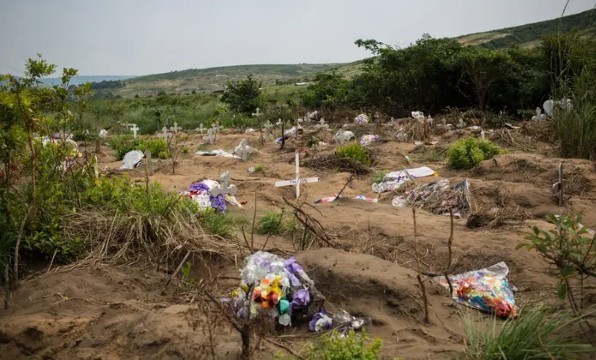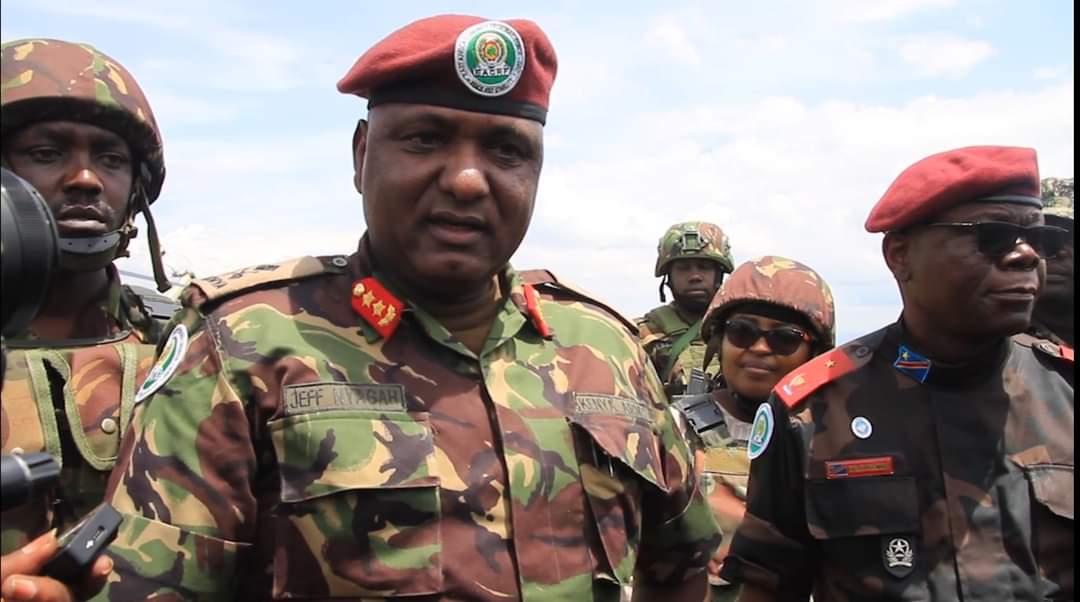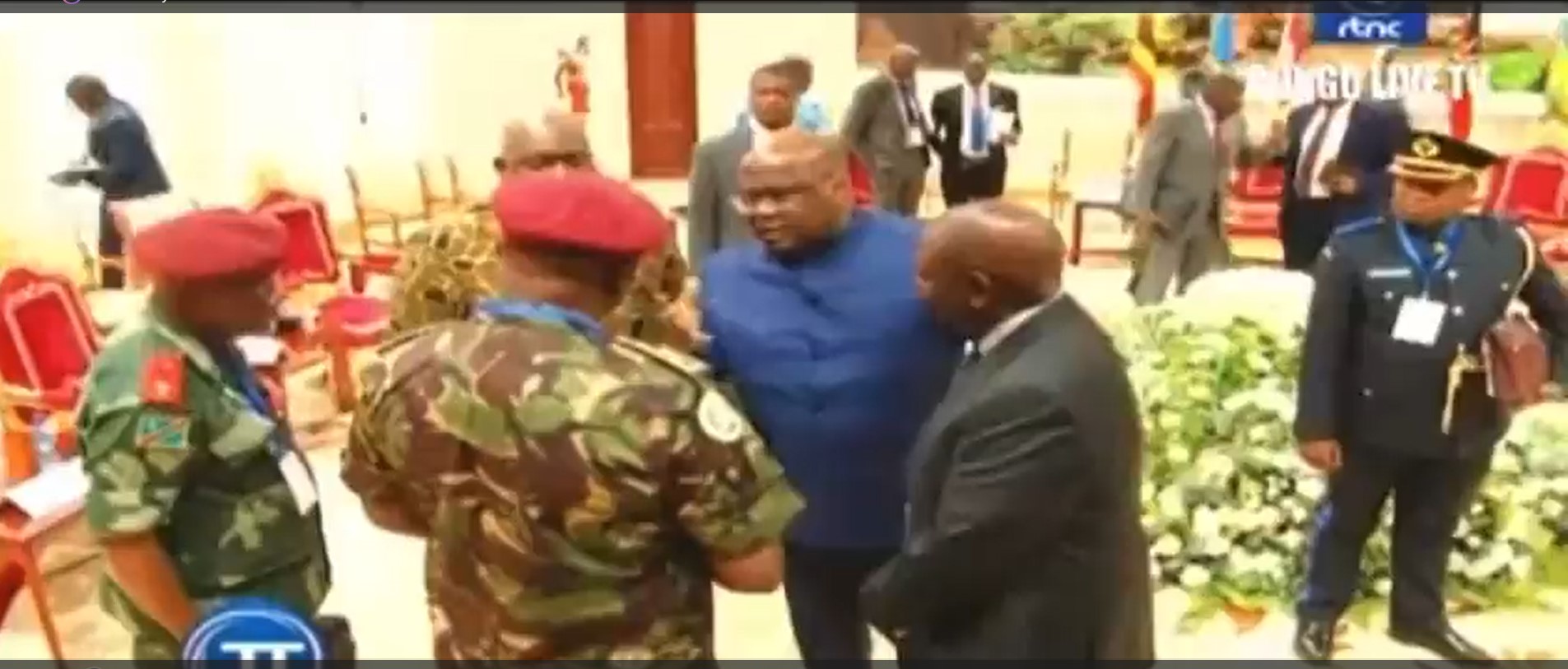Regional
DRC conflict: Will Tshisekedi toe the line, extend EACRF’s mandate?

The
mandate of the East African Community Regional Force in the Democratic Republic
of Congo (EACRF) is expected to end on September 8, at the end of a six-month extension
granted in March.
The
decision to prolong its mandate emerged from the 21st Extraordinary Summit of
EAC Heads of State held in May. It aimed to consolidate the gains made by the
force that has helped achieve a relative return to normalcy in the region
following one year of intense skirmishes between M23 rebels and the Congolese army
since 2021.
During
his working visit to DRC, on August 4, Kenya’s defense cabinet secretary Aden
Duale requested his Congolese counterpart Jean Pierre Bemba for another extension
of the EACRF mandate given that the expected security situation has not yet
been achieved.
“From
a broader outlook, it appears to us that EACRF, working alongside other
partners of the DRC has made some progress,” Duale said.
“In
this context, it is our humble appeal and we believe that of other member states
of the East African Community, that DRC considers extending EACRF’s mandate
beyond September 7, 2023. This, from our perspective, will be a positive step
in the collective resolve to consolidate the current gains following immense
sacrifice by all, under the umbrella of the Luanda and Nairobi processes.”
Bemba did
not comment on Duale’s request.
Three
months from the end of his term of office, Congolese President Felix Tshisekedi
and his government are silent on what next regarding the insecurity in the
eastern part of the country.
But
their actions speak loud.
Tshisekedi
refused to dialogue and negotiate with the M23, despite the regional effort in
supporting the political track on dialogue. His government’s army and allies
are plotting to force the M23 into cantonment and he does not acknowledge the
work done by the EACRF.
In May,
the DRC hesitantly agreed to extend the regional force’s mandate accusing it of
collaborating with rebels after the regional troops declined to combat the
rebels, something that was against their mandate.
Tshisekedi
announced that a second extension will be based on his assessment of the
force’s performance.
However,
clearly, there is little or no chance that he will commend their performance. He
has repeatedly said that EACRF is not effective and should be withdrawn from
eastern DRC. Yet the force played a great role in reducing hostilities between
M23 and FARDC.
Since
the approval of EACRF’s mandate extension, the contingent reported a
significant return of citizens from IDPs, and the opening up of routes that were
inaccessible due to the threats posed by the rebels. The important supply
routes opened up by the regional force include the Sake-Kitachanga- Mweso and Bunagana-Rutshuru-Goma
main supply routes. This enhanced the free movement of people and goods.
The
EAC regional forces' efforts in the protection of civilians allowed the
re-opening of learning institutions within their area of operations. Seven
primary schools, five secondary schools, and three higher learning institutions
became operational.
Despite
the fact that the security situation remained complex, with a number of issues
that need to be handled at different levels, EACRF remained committed to
ensuring the protection of civilians and prioritizing the overall objective of
restoring peace and stability in eastern DRC.
But
Tshisekedi is likely to reject the extension of their mandate regardless of the
progress registered by the regional force. Their goal is restoring peace while
his is to prolong the war so he can postpone the December presidential elections.
It is
imperative that EAC leaders consider the security situation in eastern DRC and
extend the EACRF’s mandate otherwise, their efforts would be fruitless, and the
region’s security would be guaranteed.
Extraordinary
EAC summit likely to decide
On
August 23, an extraordinary meeting of EAC Chiefs of Defence Forces was held in
Kenya’s capital Nairobi to discuss the security situation in eastern DRC. Regional
ministers of Defence were also scheduled to meet in Nairobi, the next day, to
review EACRF’s operations and the possibility of an extension of its mandate.
“The
EACRF continues to operate in eastern DRC to support restoration of peace and
security in eastern DRC after the mandate was renewed for six Months from 8th
March to 8th September 2023,” Dr Peter Mathuki, the EAC Secretary-General,
told The EastAfrican on August 16.
Kenya’s
EAC Minister Rebecca Miano later told The EastAfrican that
there was likely to be an extraordinary EAC summit to discuss the status of the
force in eastern DRC.
“On
the other matters of (EACRF mandate) renewal, we are within the timelines… We
anticipate before the expiry of the time we may have an extraordinary summit to
give a way forward, even though it is premature to speculate what will happen
until the relevant meetings take place.”
According
to reports, UN Security Council Secretary-General Antonio Guterres already
informed the Security Council that the UN peacekeeping mission in DRC, MONUSCO,
will leave the country by December, the time when the country is expected to
hold a general election.
According
to reports, experts warn that the exit of MONUSCO – and EACRF – would worsen
the security situation in the volatile eastern DRC.
In
May, Tshisekedi had warned that EACRF would have to leave the country by June
if they were not effective on the ground.
On a
visit to Gaborone, Botswana, where he pushed for a plan B from the Southern
African Development Cooperation (SADC) to send troops, Tshisekedi accused EACRF
of ‘cohabiting’ with the M23 rebels after the regional troops declined to enter
combat.
But
his EAC counterparts have insisted that EACRF’s mandate is peacekeeping and
protection of civilians while also supporting the political track on dialogue.
The
question now is: will Tshisekedi toe the EAC line? Only time will tell.




